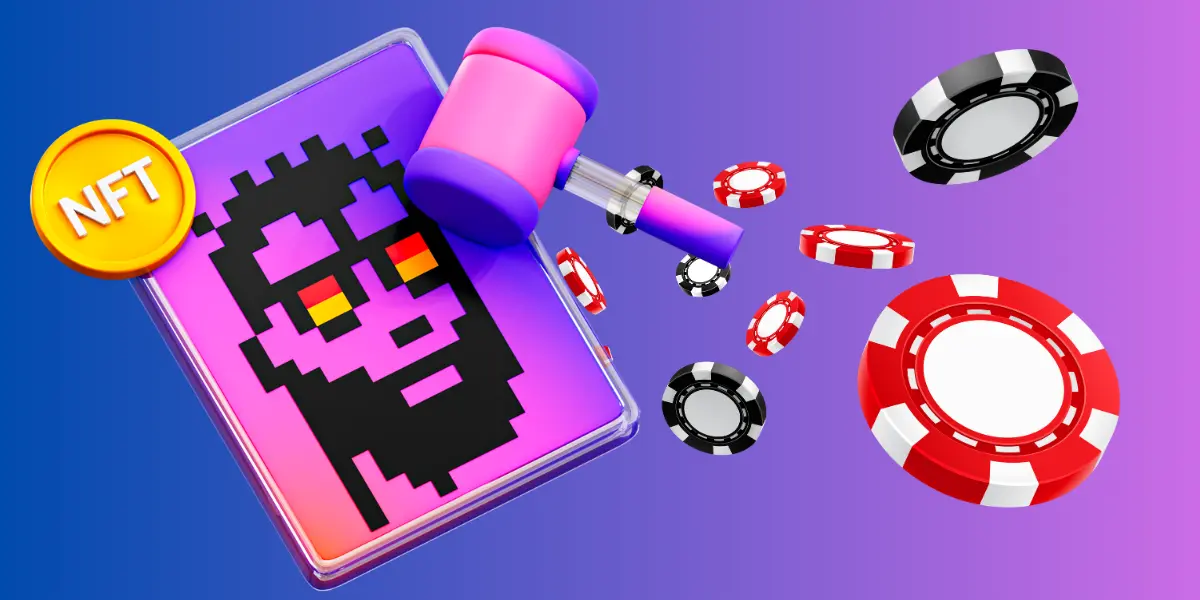
Non-Fungible Tokens (NFTs) are creating a buzz in the gaming world, and Canadian gamers are no exception to this trend. NFTs offer players the ability to own, trade, and sell in-game assets with real-world value. While the potential of NFTs in gaming is exciting, there’s still a lot of confusion surrounding how they work and what they mean for the future of gaming. In this article, we’ll explore everything Canadian gamers need to know about NFTs in gaming, from their benefits and how they work to the risks and future implications.
What Are NFTs and How Do They Work in Gaming?
NFTs are unique digital assets that exist on a blockchain, making them verifiably rare and unable to be replicated. In the gaming world, NFTs are typically used to represent in-game items such as skins, weapons, land, or even characters. What sets NFTs apart from traditional in-game items is that they are fully owned by the player and can be traded, sold, or used across different games or platforms, depending on the game’s design.
Canadian gamers can buy and sell NFTs using cryptocurrencies like Ethereum, allowing them to profit from rare or valuable in-game assets. NFTs are not just for collectibles—they can also serve as a way for players to participate in virtual economies, creating new opportunities for gamers to monetize their gameplay.
The Benefits of NFTs in Gaming for Canadian Players
NFTs in gaming come with several benefits for Canadian players, including increased ownership, the ability to trade and sell items, and enhanced immersion in the game.
Ownership of Digital Assets
One of the biggest advantages of NFTs in gaming is that they provide players with true ownership of in-game assets. Traditionally, players have had to rely on game developers to control in-game items, and these assets were often tied to a specific game or platform. With NFTs, Canadian gamers can fully own their items and transfer them between different games, sell them on NFT marketplaces, or hold them as long-term investments.
Trade and Sell In-Game Assets
NFTs allow Canadian gamers to participate in the growing market of digital asset trading. For example, players can sell rare NFTs they acquire in one game and use the proceeds to buy items in other games. This creates a new avenue for gamers to profit from their skills and achievements. High-demand NFTs can be worth thousands of dollars, depending on their rarity and desirability.
Play-to-Earn Opportunities
NFTs are closely tied to the “Play-to-Earn” (P2E) model, where players can earn real-world value through their gameplay. By earning, collecting, or creating NFTs, Canadian gamers can generate a steady stream of income. Whether it’s through selling rare items or staking NFTs for rewards, the Play-to-Earn economy has opened up new ways for Canadian players to earn while enjoying their favorite games.
The Risks and Challenges of NFTs in Gaming
Despite the exciting potential of NFTs in gaming, there are also risks and challenges that Canadian players should consider.
Volatility of NFT Market
The value of NFTs can fluctuate drastically, making them a speculative investment. What may seem like a rare and valuable item today might lose its value tomorrow. As a result, Canadian gamers should be cautious when investing in NFTs and only spend what they can afford to lose. The volatile nature of NFTs means they may not always hold long-term value, and players should carefully evaluate each purchase.
Environmental Impact
NFTs are often built on blockchain networks that require substantial energy to operate, contributing to concerns about the environmental impact of NFT transactions. As blockchain technology becomes more widely adopted in gaming, Canadian gamers may want to consider the environmental costs associated with minting, trading, and storing NFTs. Some blockchain networks are exploring more sustainable solutions, but it’s an issue that players should be aware of when engaging in the NFT market.
Risk of Scams and Fraud
The growing popularity of NFTs in gaming has unfortunately attracted scammers looking to exploit players. Fake NFTs, fraudulent marketplaces, and phishing attacks are becoming more common in the digital asset space. Canadian gamers should exercise caution when buying or selling NFTs and always verify the legitimacy of the platforms they use. Utilizing secure wallets and double-checking sellers’ reputations can help mitigate the risk of fraud.
The Future of NFTs in Canadian Gaming
The future of NFTs in Canadian gaming looks promising, as more developers explore the integration of blockchain technology into their games. NFTs could be used to enhance in-game economies, reward players for achievements, and create persistent worlds that players can interact with across multiple games. Virtual real estate, digital collectibles, and in-game economies built around NFTs could become mainstream in the coming years.
As the NFT market matures, we can expect Canadian gamers to see new opportunities for ownership, investment, and play. The continued growth of Play-to-Earn games, alongside new platforms that allow NFTs to be used across various games, will likely make NFTs an integral part of the gaming experience in the future.
Conclusion
NFTs are revolutionizing the gaming world, offering Canadian gamers unprecedented opportunities to own, trade, and earn from in-game assets. While NFTs provide exciting benefits like true ownership and the chance to participate in Play-to-Earn economies, they also come with risks, including market volatility and the potential for fraud. By understanding how NFTs work, the potential risks involved, and the future of NFTs in gaming, Canadian players can make informed decisions and capitalize on the opportunities offered by this exciting technology.